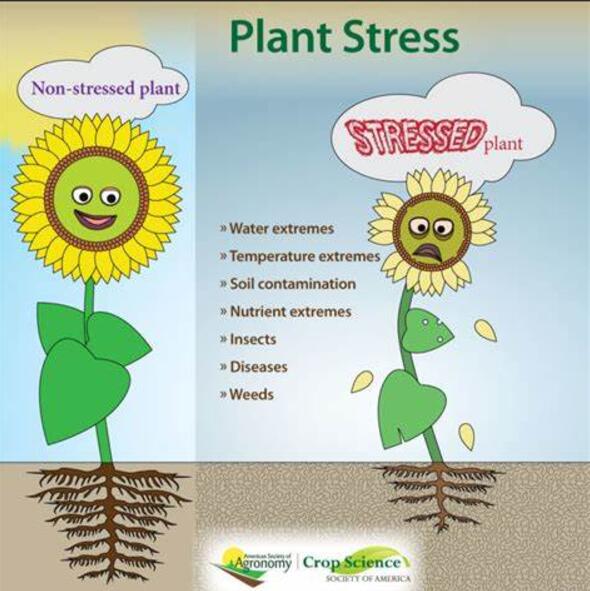氢气:一种潜在的增强植物非生物胁迫耐受性的新工具
IF 6.8
Q1 PLANT SCIENCES
引用次数: 0
摘要
氢气(H2)是一种独特的气体分子信使,它影响着植物的几个生理过程。在这篇综述中,我们介绍了H2在植物响应非生物胁迫中的作用的最新研究进展。综上所述,H2可以通过增强抗氧化防御机制、增加光合能力、重建离子稳态、维持营养稳态和调节类黄酮途径等途径增强环境胁迫耐受能力。此外,我们还讨论了H2与其他信号分子在增强植物非生物胁迫抗性中的相互作用。此外,本文还对逆境胁迫下植物体内H2的作用机制进行了综述。然而,关于H2在非生物胁迫下介导的分子机制的证据很少。为了进一步了解H2在植物非生物胁迫下的潜在应用,还需要进行更多的研究。本文章由计算机程序翻译,如有差异,请以英文原文为准。
Hydrogen gas: a potential novel tool to enhance abiotic stress tolerance in plant
Hydrogen gas (H2) is a unique gaseous molecular messenger, and it influences several physiological processes in plants. In the review, we cover current developments in the study of the role of H2 in plant response to abiotic stresses. Overall, H2 can enhance environmental stress tolerance by strengthening antioxidant defense mechanisms, increasing photosynthetic capacity, re-establishing ion homeostasis, preserving nutritional homeostasis, and regulating flavonoid pathways. In addition, we discuss the interactions of H2 with other signaling molecules in enhancing plant abiotic stress tolerance. Furthermore, this review is focused on discussing the potential mechanisms of H2 action in plants under adversity stress. Nevertheless, there is little evidence regarding the molecular mechanisms mediated by H2 under abiotic stress. More studies are required to advance our understanding of the potential applications of H2 in response to abiotic stresses in plants.
求助全文
通过发布文献求助,成功后即可免费获取论文全文。
去求助
来源期刊

Plant Stress
PLANT SCIENCES-
CiteScore
5.20
自引率
8.00%
发文量
76
审稿时长
63 days
期刊介绍:
The journal Plant Stress deals with plant (or other photoautotrophs, such as algae, cyanobacteria and lichens) responses to abiotic and biotic stress factors that can result in limited growth and productivity. Such responses can be analyzed and described at a physiological, biochemical and molecular level. Experimental approaches/technologies aiming to improve growth and productivity with a potential for downstream validation under stress conditions will also be considered. Both fundamental and applied research manuscripts are welcome, provided that clear mechanistic hypotheses are made and descriptive approaches are avoided. In addition, high-quality review articles will also be considered, provided they follow a critical approach and stimulate thought for future research avenues.
Plant Stress welcomes high-quality manuscripts related (but not limited) to interactions between plants and:
Lack of water (drought) and excess (flooding),
Salinity stress,
Elevated temperature and/or low temperature (chilling and freezing),
Hypoxia and/or anoxia,
Mineral nutrient excess and/or deficiency,
Heavy metals and/or metalloids,
Plant priming (chemical, biological, physiological, nanomaterial, biostimulant) approaches for improved stress protection,
Viral, phytoplasma, bacterial and fungal plant-pathogen interactions.
The journal welcomes basic and applied research articles, as well as review articles and short communications. All submitted manuscripts will be subject to a thorough peer-reviewing process.
 求助内容:
求助内容: 应助结果提醒方式:
应助结果提醒方式:


